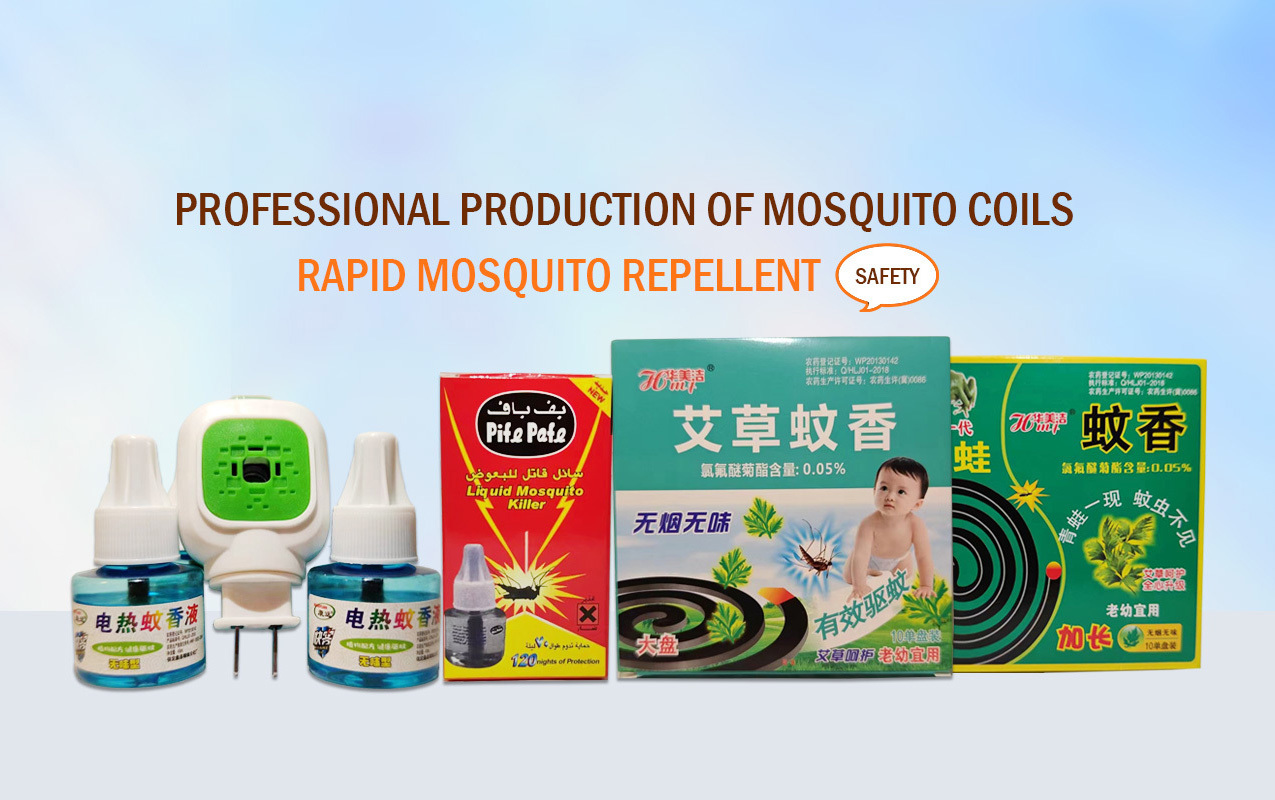pesticide for mosquito
Key words:
Electric mosquito repellent liquid
Electric mosquito repellent liquid is easy to use, can last for 30 days, no need to add medicine or change medicine every day, just open and close the switch can be
Electric mosquito repellent liquid
However, some illegal businesses may add other harmful ingredients to the electric mosquito repellent liquid to enhance its mosquito killing effect, which may cause hidden dangers to human health. Therefore, when choosing electric mosquito repellent liquid, consumers should ensure that it meets production standards and choose regular channels to buy.
Electrothermal mosquito-repellent liquid electric liquid mosquito repellent
The electric mosquito repellent liquid is easy to use and can be used for 30 days. No need to add or change medicine every day, just turn on and off the switch
Electrothermal mosquito-repellent liquid mosquito spray liquid
The electric mosquito repellent liquid is easy to use and can be used for 30 days. No need to add or change medicine every day, just turn on and off the switch Introducing our powerful Mosquito Spray Liquid, the ultimate solution for keeping those pesky mosquitoes at bay. Our specially formulated liquid spray is designed to provide long-lasting protection against mosquitoes and other flying insects, ensuring that you and your family can enjoy a comfortable and undisturbed environment both indoors and outdoors.
Key words:
The Essential Guide to Pesticides for Mosquito Control in Agriculture
Mosquitoes are not just a nuisance; they pose significant threats to both human health and agricultural productivity. As vectors for various diseases such as malaria, dengue fever, and Zika virus, controlling mosquito populations is essential, especially in agricultural environments where livestock and crops can be adversely affected. This is where pesticides for mosquito control come into play. P
The Role of Pesticides in Integrated Mosquito Management: A Comprehensive Guide
The Role of Pesticides in Integrated Mosquito Management Integrated mosquito management (IMM) is an effective approach combining various strategies to control mosquito populations and reduce the risk of mosquito-borne diseases. One critical component of IMM is the judicious use of pesticides. In this article, we will explore the multifaceted role of pesticides in integrated mosquito management, ex
Key words:
Effective Solutions: Understanding Pesticides for Mosquito Control
Mosquitoes are not only a nuisance but also vectors for various diseases such as malaria, dengue fever, and Zika virus. As such, managing mosquito populations is crucial for public health and comfort in residential and agricultural settings. One of the primary methods for controlling mosquito populations is the use of pesticides specifically designed for this purpose. Pesticides for mosquito contr
Pesticides for Mosquito Control: Myths and Facts Debunked
Pesticides for Mosquito Control: Myths and Facts Debunked Table of Contents 1. Introduction to Mosquito Control Pesticides 2. Understanding Pesticides: What Are They? 3. Common Myths About Pesticides for Mosquito Control 4. Debunking the Myths: Facts vs. Fiction 5. Effectiveness of Pesticides in Mosquito Control 6. Safety of Pesticides: What You Need to Know 7. Environ
Follow the instructions for use: When using any pesticide, you should carefully read and follow the instructions on the product. These instructions usually contain important information such as the correct dosage, method of use, scope of application, precautions and contraindications. Understanding the types of pesticides: There are many types of pesticides, such as pyrethroids, organophosphates and mebendazole, each with its own characteristics and scope of application. Knowing these can help users choose the right insecticide and avoid inappropriate use.
Key words:
Are pesticides harmful to plants?
Pesticides do have the potential to harm plants. First, the toxic ingredients contained in pesticides can cause plant and animal discomfort and even illness. In addition, if pesticides are accidentally sprayed into water, plants may die by absorbing water. However, this does not mean that all plants cannot use pesticides. For example, some plants such as plum, cherry, peach, apricot, elm and other ornamental plants will have obvious phytotoxicity when using certain pesticides, and other kinds of pesticides should be used instead. In general, the use of pesticides requires caution. The decision on whether to use them, as well as the timing and method of use, should be based on the type of plant and the nature of the pesticide.
Key words:
Latest Products
Latest News
Contact Us
Leave Us A Message


